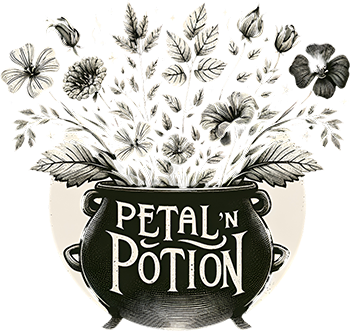S t . J o h n ’ s W o r t
St. John’s Wort (Hypericum perforatum) is a flowering plant native to Europe, parts of Asia, and North Africa.
Traditionally used in herbal medicine, it is well-known for its potential benefits in treating mild
to moderate depression, anxiety, and sleep disorders.
Benefits
- Treats Depression: Known for its efficacy in alleviating symptoms of mild to moderate depression.
- Anxiety Relief: Helps reduce symptoms of anxiety and stress.
- Improves Sleep: Promotes relaxation and improves the quality of sleep.
- Mood Enhancement: Contributes to overall mood elevation and emotional well-being.
- Menopausal Symptoms: Alleviates symptoms associated with menopause, such as mood swings and hot flashes.
- Wound Healing: Promotes healing of wounds, burns, and bruises when applied topically.
- Antiviral Properties: Exhibits antiviral effects, particularly against viruses such as the herpes simplex virus.
- Anti-Inflammatory: Reduces inflammation, benefiting conditions like arthritis and other inflammatory diseases.
- Pain Relief: Provides pain relief for conditions such as neuralgia and sciatica.
- Supports Liver Health: Aids in detoxifying the liver and supports liver function.
Active Compounds
- Hypericin: One of the primary active compounds responsible for St. John’s Wort’s antidepressant and antiviral effects.
- Hyperforin: Contributes to the plant’s antidepressant, anti-inflammatory, and antimicrobial properties.
- Flavonoids: Provide antioxidant protection and support overall health.
- Tannins: Known for their astringent and antioxidant properties.
- Phenolic Acids: Offer additional antioxidant and anti-inflammatory benefits.
- Essential Oils: Provide antimicrobial and soothing effects.
Who Should Avoid This
- Individuals with Allergies: Those allergic to St. John’s Wort or related plants should avoid it.
- Pregnant and Nursing Women: Consult a healthcare provider before use, especially in large amounts.
- Individuals with Photosensitivity: Use caution due to its potential to increase sensitivity to sunlight.
- Individuals on Medication: Particularly those taking antidepressants, anticoagulants, hormonal contraceptives, and immunosuppressants should consult a healthcare provider to avoid interactions.
- Children: Consult a healthcare provider before giving St. John’s Wort in medicinal doses to young children.
Warnings
While St. John’s Wort offers numerous health benefits, some precautions and potential side effects should be considered:
- Photosensitivity: Can increase sensitivity to sunlight, leading to an increased risk of sunburn.
- Allergic Reactions: Can cause allergic reactions in some individuals.
- Gastrointestinal Issues: May cause stomach upset, dry mouth, or diarrhea in some individuals.
- Pregnancy and Breastfeeding: Consult a healthcare provider before use, as high doses may not be safe.
- Interactions with Medications: May interact with a wide range of medications, including antidepressants, anticoagulants, birth control pills, and immunosuppressants.
Usage Guidelines
St. John’s Wort can be used both short-term and long-term, depending on the condition being treated. For acute issues such as relieving symptoms of depression or anxiety, it is typically used until symptoms improve. For ongoing benefits such as mood enhancement, sleep improvement, or general wellness, longer-term use may be appropriate but always under the guidance of a healthcare professional. Always consult with a healthcare provider to determine the correct dosage and duration for your specific needs.
